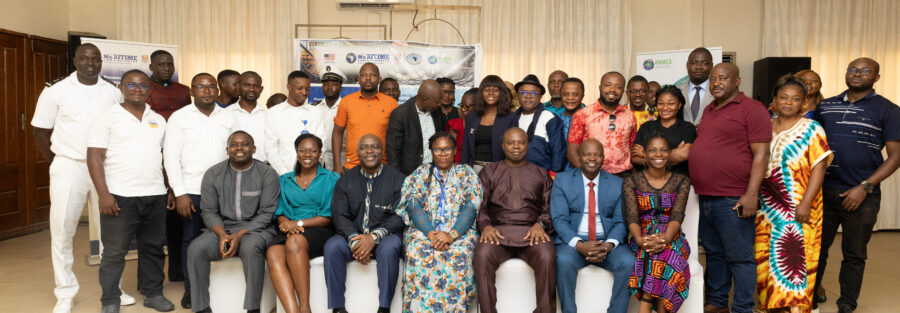Over 30 representatives from government agencies, civil society organizations, community groups and the media gathered in Douala, Cameroon on May 7th for a one-day capacity building workshop focused on promoting transparency and accountability regarding distant water fishing vessels (DWFVs) operating in the Gulf of Guinea.
The workshop, organized as part of the ongoing US State Department funded project titled ‘’ Promoting Local Capacity to Address the Destabilizing Impacts of Foreign Fishing Vessels in the Gulf of Guinea and Mauritania’’ aimed to strengthen the skills and knowledge of participants to address the destabilizing impacts of industrial fishing more effectively on local communities and fisheries sustainability.
Presentations were given on the international legal framework around fisheries governance, threats to sustainable fisheries in West Africa from DWFVs, enhancing domestic control over industrial fishing fleets, and the challenges faced by the media in reporting on this issue. Government representatives from the Ministry of Livestock, Fisheries and Animal Industries shared Cameroon’s strategy for combating illegal, unreported and unregulated fishing.
A simulation exercise in the afternoon engaged participants in discussing the role of transparency and oversight in curbing the negative effects of DWFVs. Representatives from US Embassy-Ghana and US Embassy-Cameroon also remarked on the importance of multistakeholder collaboration.
The workshop provided a valuable platform for information sharing, experience exchange and networking between participants from government, civil society and media on strengthening fisheries governance and rights-based approaches to fisheries management.
The workshop was organized by project implementors, CEMLAWS Africa and the Centre for Coastal Management (CCM-UCC) in collaboration with their country partner, African Marine Mammal Conservation Organization (AMMCO).





